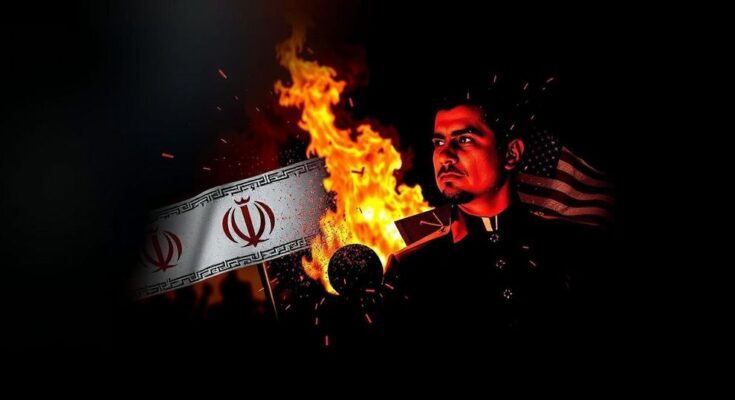The Middle East crisis is intensifying with Israeli airstrikes in Lebanon claiming 52 lives, while Iran threatens a “crushing response” to Israeli attacks. The Israeli parliament has banned UNRWA, raising concerns over humanitarian aid for millions of Palestinians. Pro-Iran groups conducted drone strikes on Israel, escalating military tensions. Diplomatic efforts for a ceasefire face substantial challenges amidst this violence.
The ongoing Middle East crisis has escalated with significant confrontations involving Israel, Iran, and militant groups in Lebanon and Iraq. On Friday, the Israeli parliament approved legislation to ban the United Nations Relief and Works Agency for Palestine Refugees (UNRWA) from operating in Israel, deeming it a terrorist organization. This decision raises grave concerns regarding the humanitarian aid provided to over two million Palestinians in Gaza and nearly one million in the West Bank, as these communities depend on UNRWA for essential services during this tumultuous period. According to Dr. Maya Rosenfeld from the Hebrew University of Jerusalem, the absence of UNRWA would have catastrophic implications, stating, “I can emphatically say there is no alternative.”, as emergency providers cannot substitute for its extensive role. On the ground, violence has surged, exemplified by Israeli airstrikes in Lebanon that reportedly resulted in 52 casualties and numerous injuries. Concurrently, pro-Iran factions have claimed responsibility for drone attacks directed at Israel’s resort city of Eilat, further heightening tensions in the region. In response, Israeli military forces intercepted several drones approaching from Iraq, while Hezbollah launched rockets targeting Israeli military installations in Tel Aviv. Moreover, Ayatollah Ali Khamenei, Iran’s supreme leader, issued a stern warning to both Israel and the United States, threatening a “crushing response” should hostilities continue. He emphasized that the Iranian nation would retaliate against actions perceived as assaults on its sovereignty. The perilous situation is exacerbating the humanitarian crisis in Gaza, where UN officials describe conditions as “apocalyptic.” The ripple effects of these developments extend beyond military confrontations, as diplomatic efforts led by the Biden administration for a ceasefire and a resolution to tensions have met with significant obstacles. Even as violence persists in the region, the fate of the Israeli laws against UNRWA remains uncertain, with potential legal challenges ahead. In summary, this multifaceted crisis exemplifies the complexities of international relations in a region fraught with historical grievances, humanitarian challenges, and the urgent need for diplomatic reconciliation.
The emergence of the current crisis in the Middle East is rooted in longstanding tensions between Israel and Palestinian groups, exacerbated by broader regional conflicts involving Iran and its allies. The United Nations Relief and Works Agency for Palestine Refugees (UNRWA) has played a critical role in providing humanitarian assistance and essential services to millions of displaced Palestinians. However, Israel’s recent decision to label UNRWA as a terrorist organization raises alarms about the future of humanitarian aid in Gaza and the West Bank amidst ongoing violence. Meanwhile, Iran’s support for militant groups in Iraq and Lebanon poses further challenges to stability in the region, as both sides demonstrate a willingness to escalate military confrontations. The backdrop of these events is characterized by compelling international dynamics, including ongoing diplomatic efforts by the United States to mediate between the conflicting parties.
The Middle East crisis has manifested in intense military confrontations, particularly involving Israel, Iran, and various militant groups. The legislation targeting UNRWA indicates a significant shift in Israel’s approach to humanitarian aid, which could have dire consequences for millions dependent on its services. Simultaneously, threats from Iranian leadership and the escalation of drone and rocket attacks illustrate a potential for wider regional conflict, drawing in multiple stakeholders. As diplomatic efforts for a ceasefire collide with ongoing violence, the prospect for peaceful resolution remains uncertain.
Original Source: www.theguardian.com




